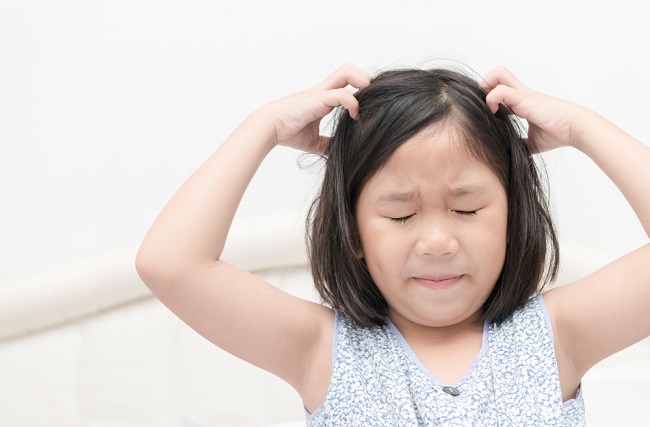Do not Panic, It's How to Overcome Hair Lice in Children
If Mother thinks k hair utility relates to social status or lack of hygiene, then that is not quite right. R clean and washable hair can be targeted hair louse. So it is not uncommon, Mother was surprised to find a hair louse on the Little.
Hair louse is a parasitic insect that has six feet of adult size, about the size of a sesame seed. This louse lives on the scalp and neck by sucking human blood at that location. While pink eggs are pale yellow or brown point, usually attached near the base of hair strands. At first glance looks like dandruff, but it can not be thoroughly combed only.

Contagious
Although it does not cause serious illness, but hair lice are very disturbing and can easily spread to other people's heads.
Hair ticks are more infectious among children, especially in kindergarten (kindergarten) and elementary school. Because, children are more age play together closely, so it is more likely to occur hair contact. In addition, parents or other adult family members may also contract infestation from the child. Some objects that can be a means of transmission of hair lice include combs, hats, hairpins and hair accessories.
Mother can recognize the symptoms of a child catching a hair louse, that is when he continues to scratch the scalp due to itching. This itching may not occur within a few weeks after the lice eggs stick to the baby's head.
The itching caused by hair bites is an allergic reaction. If scratched in excess can leave the wound. Although not common, the injury may cause infection, which is marked by scalp or around the neck looks reddish, swollen, painful, and can be accompanied by lymph nodes in the neck becomes swollen. Consult a doctor immediately if you find the condition.
Get Rid of Destructive Hair Mites
The hair louse will not go by itself without being handled, Bun. The good news, hair mites can be eradicated both naturally and with various hair products, such as shampoo, creams, and lotions, which are sold freely or by prescription. Let's follow some of the guidelines below:
- Combing hair while hair is still wet can help shed eggs attached to strands of hair.
- Wash your hair with antial medication while following the instructions for use. Repeat the hair washing with this medicine after 7-10 days to turn off the newly hatched lice.
- Soak a comb and various hair gear, such as a hair band and a hairpin, in alcohol or a tick lice shampoo for an hour. Wash with hot water.
- During the treatment period, avoid drying the child's hair with hair dryer , Mother, to avoid ticks from moving to other areas.
- Avoid using conditioner or shampoo containing conditioner, before applying flea medicine.
- Avoid applying the same drug more than 3 times to 1 child. If a drug is not effective, ask your doctor to prescribe a different drug.
- Avoid using 2 different types of drugs at the same time.
- Over-the-counter medicinal drugs contain chrysanthemums extracts or synthetic ingredients. But be careful, Bun, sometimes fleas do not work eradicated with this material. On the other hand, this material is not recommended for children.
- Flea eggs can last a long time on a child's clothing. So you should wash small clothes with warm water. So also with children's toys.
If the child is under two months old, you should avoid giving hair lice. In this case, the Mother needs to pick up ticks and lice eggs one by one with a tight-toothed comb and hand, as the Little Wet's hair is wet with conditioner . Repeat every 3-4 days for 3 weeks.
Some parents try to use natural ingredients like vinegar and mayonnaise to shed flea eggs attached to strands of hair. But these ingredients have not proven effective.
How to Prevent Hair Flee Spread
Steps that can be taken to prevent the spread of head lice are by contacting the school or daycare where the Little Person often spends time, so that they can examine other children who may also be affected by head lice.
Do not forget to check other family members, such as siblings or siblings, to ascertain if they are also affected by hair fleas. Also, to keep the hair lice off, remind the child not to share personal items, such as combs, hats, hair clips, towels, or headbands, with other children.
So, do not panic again facing hair lice yes, Mother. Let's get rid of the flea lice, so the child can come back to play cheerfully without itching in the hair.